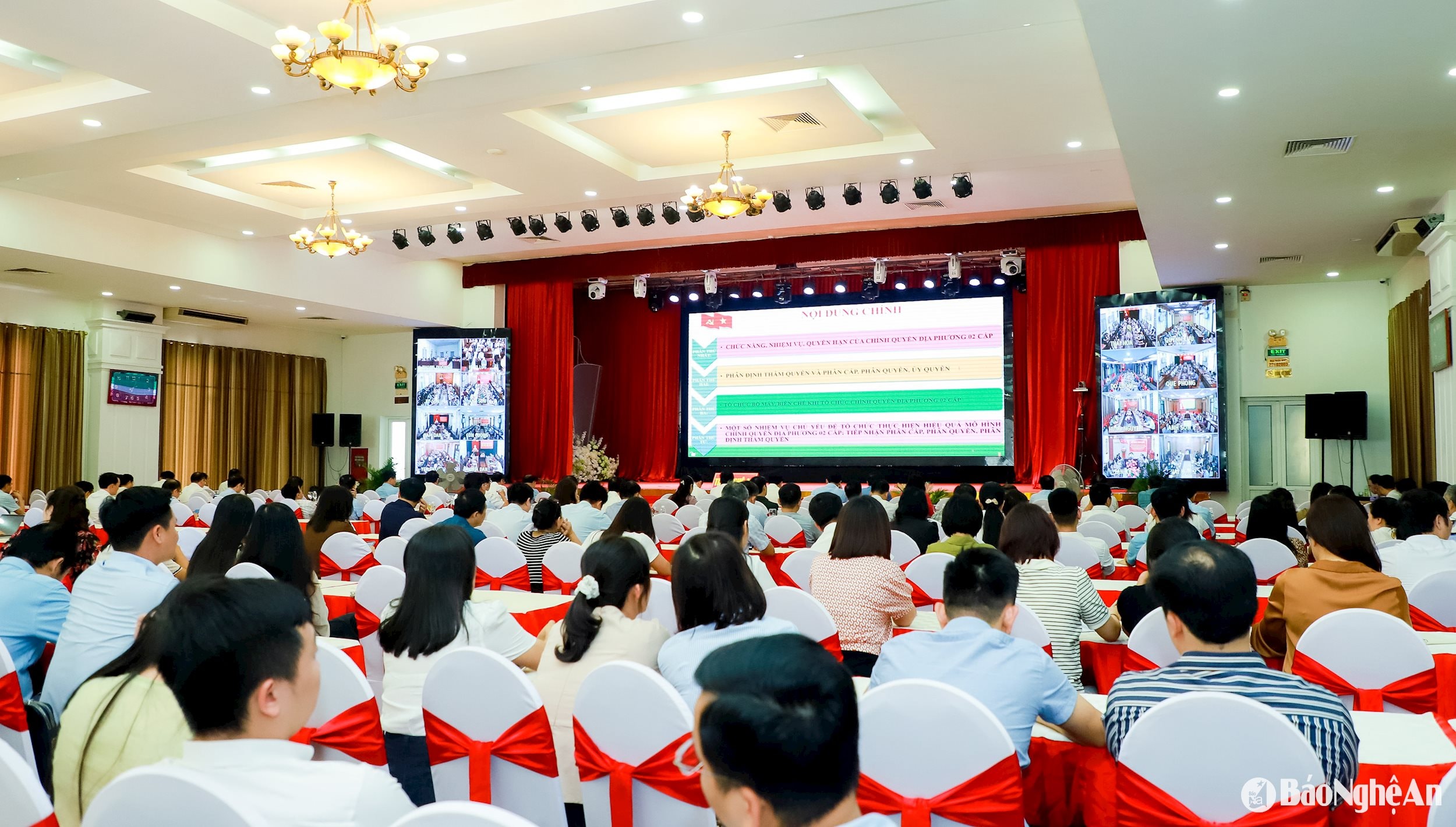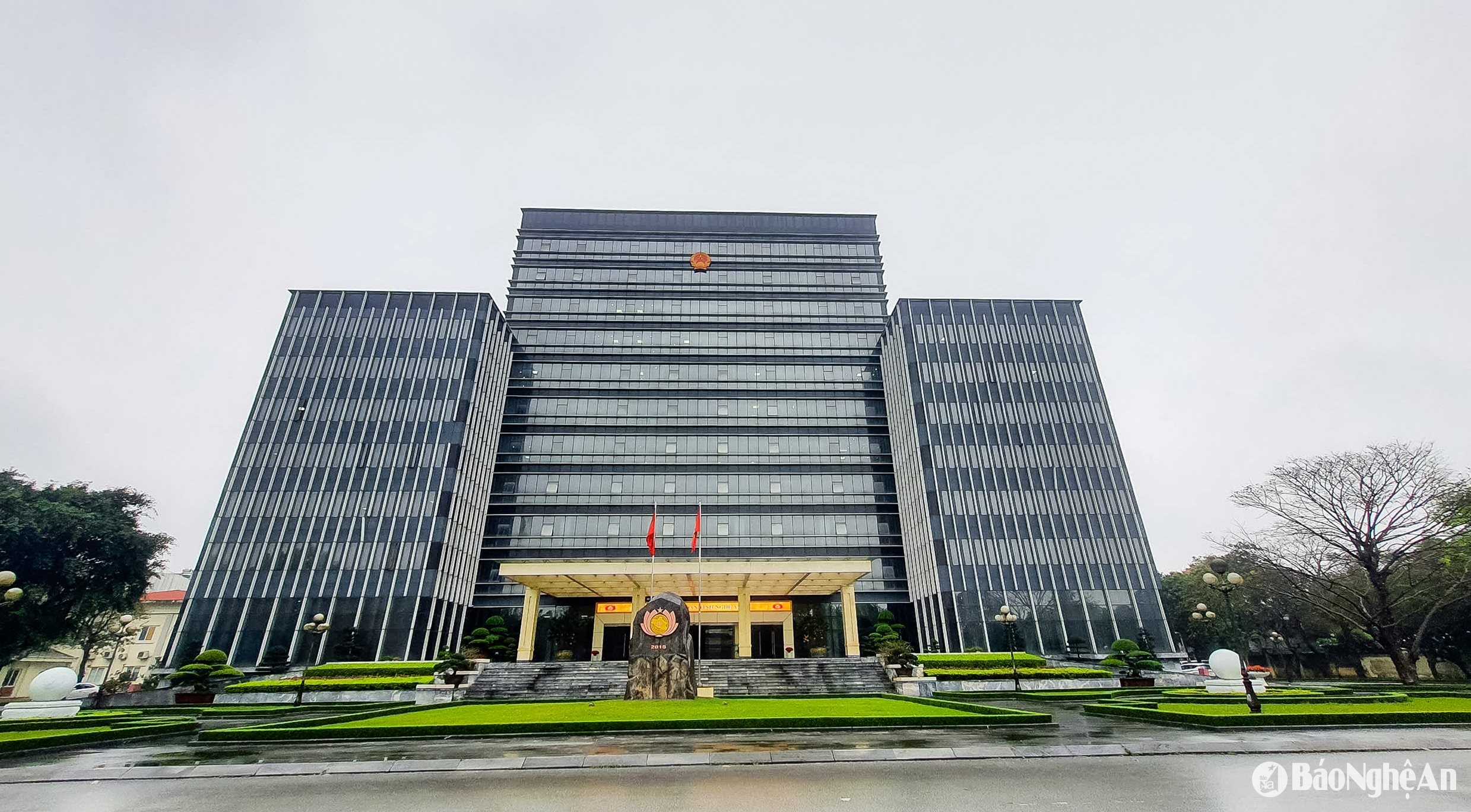Two-level local government: Organizational innovation, breakthrough in decentralization and delegation of power
With 1,065 decentralized tasks, the two-level local government model (province and commune) is expected to create a breakthrough in local development, serving people faster.

On the afternoon of June 14, at the National Training Conference on the organization and operation of Party organizations, government, Fatherland Front, and political organizations at the commune level (new), comrade Pham Thi Thanh Tra - Member of the Party Central Committee, Minister of Home Affairs, Deputy Head of the Government's Steering Committee on the arrangement of administrative units at all levels and the organization of two-level local governments introduced an overview report on the functions, tasks, and powers of two-level local governments; general issues on decentralization, delegation of power, and assignment of authority to two-level local governments.
Fulfilling the mission of 3-level local government
According to the Minister, after nearly 8 decades of implementing the 3-level local government model (province, district, commune), the glorious mission and responsibility have been fulfilled. The construction of a 2-level local government model (province, commune) is not only an inevitable trend in the context of promoting digital transformation, urbanization, and sustainable development, but also aims to realize the modern governance ideology: "Local decision, local action, local responsibility".
The two-level government is redesigned to maximize the potential and advantages of the territory; expand development space; and restructure administrative units to suit practical conditions.
The law that underpins the above changes is the Law on Organization of Local Government (amended) which will be passed by the National Assembly at the 9th Session of the 15th National Assembly.
Minister Pham Thi Thanh Tra said: The new point is that this amendment to the Law is based on the principle of delimitation: "Clear subject - clear work - clear responsibility - clear scope - clear effectiveness; no duplicate functions, no overlapping authority; suitable to natural conditions, population size, socio-economic characteristics; linking decentralization, delegation and reasonable authorization with autonomy and self-responsibility; having a flexible monitoring, evaluation and adjustment mechanism".
Decentralization1,065 missionsfor local authorities
The Minister of Home Affairs clearly analyzed the functions, tasks and powers of the two-level local government, with the highlight being 1,065 tasks that the Government, the Prime Minister, Ministers, and Prime Ministers of agencies at the same level have decentralized and delegated powers to local governments; clearly demonstrating the trend of enhancing the proactiveness, autonomy and responsibility of grassroots governments in State management and socio-economic development.
In particular, the Provincial People's Council has many changes in position and role, not only playing the role of a State power agency at the local level as before, but also gradually becoming an "institutional designer" at the local level, playing a central role in coordinating policies and protecting the legitimate rights and interests of the locality within the new legal framework and management decentralization.

Similarly, the Provincial People's Committee has also been upgraded in position, role and main function; from a purely administrative agency, to become a unified executive center for law enforcement, proactively and regulating sustainable development in the locality.
“This is a necessary adaptation of the administrative system in the context of organizing two-level local government and moving towards an effective, efficient, flexible and people-serving local governance,” said Minister Pham Thi Thanh Tra.
The core tasks of the Chairman of the Provincial People's Committee are clearly defined in the draft law, including: Organizing and directing law enforcement; uniformly operating the administrative apparatus from the province to the commune level; decentralizing and authorizing strongly and proactively; making decisions on behalf of the People's Committee when necessary; proactively handling emergency situations.
The functions, tasks, and powers of the local government at the commune level have also been redesigned. Accordingly, the People's Council of the commune has 27 tasks and powers, an increase of 19 tasks and powers compared to the current law; and the People's Council of the ward has 29 tasks, an increase of 22 tasks compared to the current law.
Some new issues include: Commune-level People's Councils affirming the central role of State power at the grassroots level; expanding the authority to decide on policies and development at the local level; receiving tasks and authority from the provincial-level People's Councils, decentralizing and delegating powers; establishing more substantial power supervision and control rights; establishing for the first time a specialized committee under the commune-level People's Council; expanding more modern supervision contents such as: digitalization, public services, human rights.
The People's Committee at the commune level is the executive body of the People's Council at the commune level, responsible for organizing the implementation of the People's Council's resolutions, ensuring the people's mastery; is the State administrative agency at the local level, representing State policies to organize the implementation of the Constitution, laws, policies, and documents of higher levels and performing State management tasks at the commune level.
